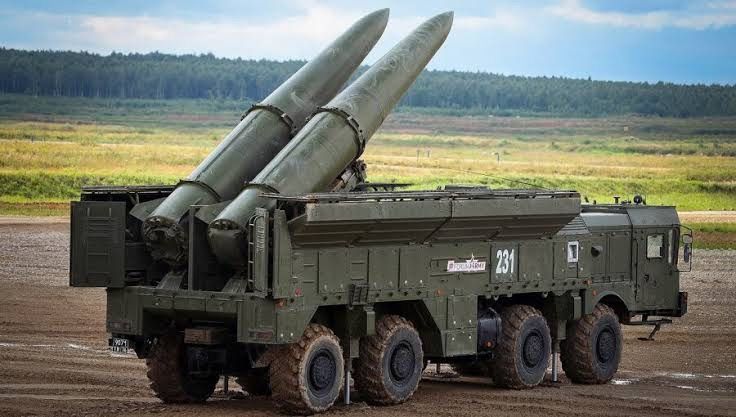Russia and Belarus Sign Agreement Permitting Deployment of Russian Tactical Nuclear Weapons on Belarusian Territory
Russia and Belarus have signed documents permitting the positioning of Russian tactical nuclear weapons on Belarusian territory, a decision that has heightened the already tense relations between the Kremlin and the West. Russian Defense Minister Sergei Shoigu stated after the signing in Minsk on May 25 that Moscow will retain

Russia and Belarus have signed documents permitting the positioning of Russian tactical nuclear weapons on Belarusian territory, a decision that has heightened the already tense relations between the Kremlin and the West.
Russian Defense Minister Sergei Shoigu stated after the signing in Minsk on May 25 that Moscow will retain control of the weapons while they are on Belarusian soil.
Russian President Vladimir Putin raised the possibility in March of deploying tactical nuclear weapons in Belarus, which borders Ukraine and three NATO countries, by July. The autocratic leader of Belarus, Alyaksandr Lukashenka, has agreed to this plan.
Governments around the world immediately criticized this announcement, with NATO labeling it "dangerous and irresponsible."
The United States denounced the move, with State Department spokesman Matthew Miller branding it as "the latest example of irresponsible behavior we have witnessed from Russia since its full-scale invasion of Ukraine more than a year ago."
Shoigu stated on May 25 that the decision was made in light of "an extremely sharp escalation of threats on the western borders of Russia and Belarus."
Meanwhile, Lukashenka told reporters in Moscow on May 25, where he is attending a meeting of the Eurasian Economic Union, that "the transfer of the nuclear weapons [from Russia to Belarus] had begun."
When a journalist asked if any of Russia's tactical nuclear weapons were already in Belarus, Lukashenka said: "Probably. I will see when I go back."
Tactical nuclear weapons are lower-yield weapons intended for use on the battlefield rather than for obliterating entire cities. Russia has not disclosed the number of tactical nuclear weapons it possesses.
No details of the agreement with Belarus on the number of weapons to be deployed were released. Shoigu said the agreements concern procedures for the establishment of a "special" storage facility for the weapons.
Last month, Russian ambassador to Belarus, Boris Gryzlov, stated that the plan to position Russian tactical nuclear weapons close to NATO member states was designed "to increase the possibilities of guaranteeing security" of the Russia-Belarus Union State, a project for deeper integration between the two nations. Moscow and Minsk signed a Union State treaty in 1999 and have been intermittently negotiating it since then.
Russian authorities have repeatedly invoked the specter of potential nuclear weapon use since launching a full-scale invasion of Ukraine in February 2022, with the frequency of the warnings escalating as Moscow's aggression against Ukraine persists.
From the outset of its full-scale invasion of Ukraine 15 months ago, Russia has used Belarus—with Lukashenka's approval—as a staging ground for the unprovoked attack. After a sometimes deadly government crackdown on large-scale protests following a disputed 2020 presidential election that handed Lukashenka a sixth term, Belarus has welcomed closer ties with Moscow since the West imposed a wave of crippling sanctions on it.
It is crucial to note that despite all these tensions and threats, there is no evidence that Russia is preparing to use a nuclear weapon. While their presence on Belarusian territory is inherently dangerous, the strategic and political consequences of their use are enormously grave and irreversible. Consequently, all parties must continue the dialogue and avoid escalating the conflict in order to maintain regional stability and international security.




